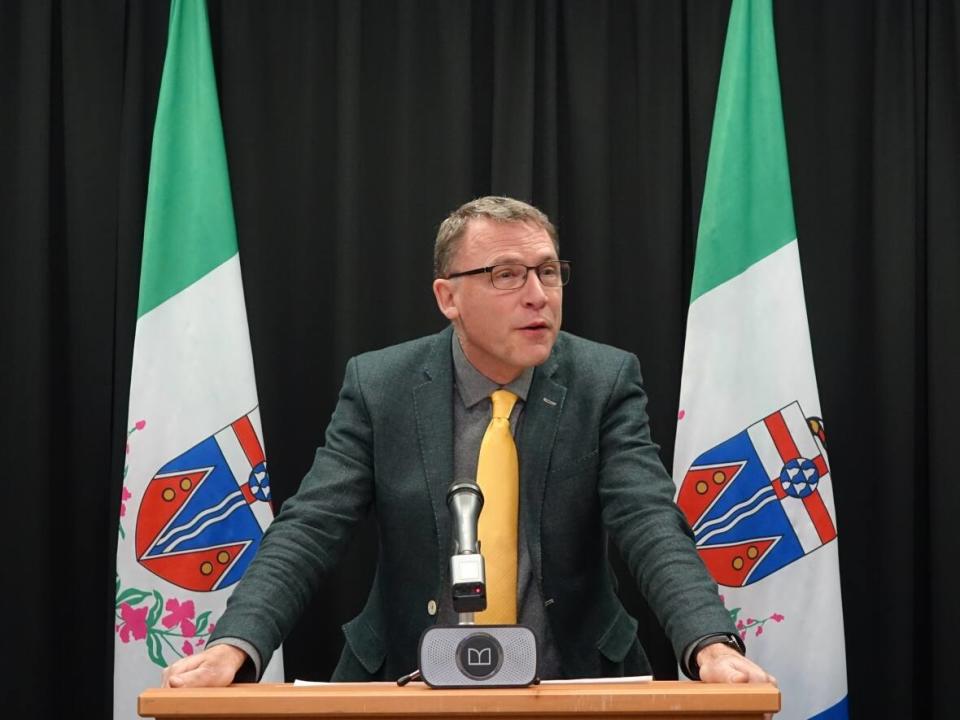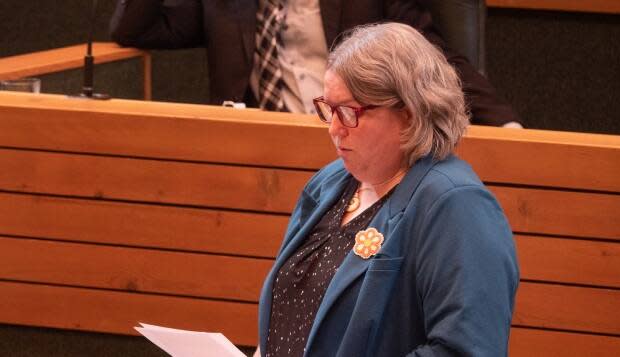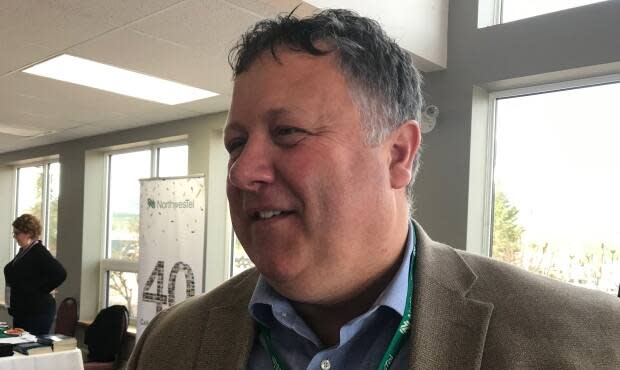Yukon Liberals and NDP reach deal to postpone controversial energy retrofit bill

The Yukon Liberals and NDP reached a deal in the Legislature this week to delay controversial legislation that would create an energy retrofit program until the government does more consultation with municipalities on it.
The government hoped to pass a short seven-page bill with amendments to the Municipal and Taxation Act before the end of the fall session, setting the stage for the creation of the retrofit program.
While there is non-partisan support for retrofits, some municipalities expressed concern that they would be tasked with the burden of the program's administration, at a time when they are juggling COVID-19 responses with staff shortages.
That's why NDP Leader Kate White reached out to the Liberals with a proposition: the NDP would vote the bill through second reading, so long as the government takes time during the winter months to do more consultation with municipalities.
That way, the bill could be passed on third reading during the spring session with no contention.
"There has been a compromise," White said in the Legislature Wednesday.

"I did not want to see this bill die today … so I did everything in my power to make sure that didn't happen. So I am grateful that my pleas were heard."
In a statement, the Yukon Liberals said they will "establish a working group" with municipalities this winter to discuss the program in more detail.
'We know the territory won't be there for us'
The Liberals promised to put in place the Building Better Buildings energy retrofit program in their 2019 Throne Speech, but got delayed due to the COVID-19 pandemic.
Once the amendments pass in the spring session, the government aims to retrofit 2,000 homes and commercial businesses by 2030, with things like insulation and sealing, energy recovery ventilators or new windows and doors.
The program relies heavily on whether incorporated municipalities will support it. If not, Yukoners in those communities won't be able to access the rebates.
As it stands right now, the amendments mean that municipalities will have to collect a levy or loan through a local improvement charge (LIC). The legislation suggests charging the taxpayer a flat fee of $500 per month to cover that added cost.
Gord Curran, president of the Yukon Association of Communities and mayor of the the Village of Teslin, said that fee won't cover the long term responsibilities that municipalities will have to take on if they opt into the retrofit program.

"Once it becomes an LIC, it becomes the municipality's problem," Curran told CBC News earlier this month.
"And we know that when it becomes a municipal problem, we know the territory won't be there for us."
The length of the loan is also a concern to Curran.
Under the territory's program, there is currently a 15-year repayment program on the loan. If one of the municipality's residents is having a hard time making their loan payments, Curran continued, then it might put the local government in a tough spot.
They'd have to go through a tax lien, a claim for a person's property when they're unable to make their tax payments.
"These are all small communities that might have to take somebody's house," Curran said. "We feel that's a horrible position to be put in."
Delay gives more time to define program terms, minister says
Curran's concerns were echoed by mayors in Mayo, Watson Lake and Whitehorse's previous mayor Dan Curtis, in letters to Richard Mostyn, Yukon's community services minister.
"We feel that the better buildings program has the potential to be an amazing program, but we would like to see more due diligence done before it is passed," the letter from Watson Lake reads.
"We are struggling to understand why a working group has not already been formed."
Mostyn told the Legislature on Wednesday that he started consulting with municipalities about the amendments in January 2020. The changes were brought up again in September, Mostyn said, after the initial first wave of the pandemic.
Mostyn also said he "met with all municipal councils" between June and October of this year, in the lead up to the introduction of the amendments in the Legislature and as a top agenda item for new mayors and councils after local elections.
Leaving the amendments to the spring session, Mostyn said, will let them "better define the program terms" with municipalities.
"What's not to like, Mr. Speaker?" Mostyn said in the Legislature. "We face a climate emergency. What is more important? I can think of nothing — nothing at all."
Mostyn told Curran in a letter last week that action will be delayed until 2023 if the legislation is delayed. If passed by the end of the fall session, the program could have been in place by spring 2022.
Curran suggests that the government take care of all aspects of the program, from the concept to the loan collection, in order to make it work for municipalities.

 Yahoo Finance
Yahoo Finance 